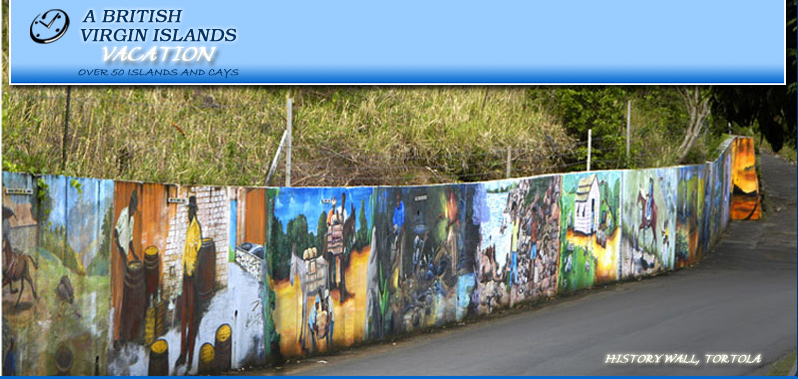British Virgin Islands History
The British Virgin Islands were first inhabited by the Ciboneys Indians which first came to the BVI from the Americas in small wooden canoes. Hundred of years later the Arawaks came to the islands living a peaceful life style of simple farming and fishing. Many years later the Caribs followed the Arawak up the Chain of the Leeward islands until reaching the British Virgin Islands.
In 1493, Christopher Columbus, exploring for new lands and mineral wealth, discovered the islands and claimed them for Spain. It was evident that there was copper on Virgin Gorda. The Carib indians were so antagonistic and defended their territory so fiercely that, in 1550, Charles V of Spain decreed that they should be treated as enemies and they were exterminated. The Spanish, continuing their explorations, discovered the bounty of South America and abandoned the islands, which were left uninhabited for the last half of the 16th. century.
In 1621, the Dutch made Tortola their base and despite spasmodic attacks from Spain, who still considered the islands to be theirs, persisted in their occupation and built a fort there. During their tenure, the islands became a haven for buccaneers.
In 1665, on the outbreak of war between England and Holland, Captain John Wentworth attacked the islands and the Dutch lost their foothold.
In 1789, saw the advent of the first Methodist missionaries to the islands. At this time, the estimated inhabitants of the islands was 4,000, including slaves. The influence of the Christian religion has remained strong to this day.
BVI History
In 1807, Britain abolished the slave trade.
In 1834, the Emancipation Act of 1834 resulted in the final collapse of the plantation system and economy. At this time, there was an estimated population of 5,500.
In 1867, Crown Colony government was adopted in 1867. The Legislature was reconstituted with six non-elected members, three ex-officio, and three nominated members.
In 1953, The Hotel Incentive Ordinance was passed, which was the first step in promoting the islands as a tourist destination with quality hotels.
Things remained very quiet on the British Virgin Islands until the 1960s, when Laurance Rockefeller and Charlie Cary essentially boosted the tourism industry there. Recognizing the tourism potential of the serene islands, Rockefeller developed the Little Dix Bay resort on Virgin Gorda and Cary established a marina complex on Tortola.
In 1964, further constitutional reform gave members more initiative in the colony's affairs. The ministerial system was introduced. Legislative Council consisted of seven elected and three non-elected members. Executive Council, the advisory body, consisted of three elected and two non-elected members. The Administrator remained Head of Government and was responsible for Finance, Law and Order, External Affairs and the Civil Service.
In 1969, the yacht chartering business began, and this has now become a major industry.
In 1981, The British Nationality Act of 1981 made British Virgin Islanders citizens of a British Dependent Territory.
In 1984, passing of the International Business Companies Act, the off-shore financial businesses began to take advantage of the tax and asset protection benefits offered.
In 1986 saw the arrival of the first cruise ship in island waters.
In 1988, whilst there was political unrest in Panama, the BVI boasted economic and social stability along with security measures in place to deter illegal operations. This encouraged an influx of Trust companies, with registration of thousands of international business companies. These have become a large source of revenue and employment to the local community.
In 1990, the H.Lavity Stoutt Community College was opened and continues to provide a wide range of tertiary education to all members of the community.
In 1998, a revised Constitution provided more equitable representation. The number of members of the Legislative Council was increased to thirteen, with nine district members, and four Territorial-at-large members.
In 2000, constitutional change increased the number of ministers to five.
In 2007, constitutional changes introduced the House of Assembly which was formally known as the Legislative Council, and the position of Chief Minister was officially changed to Premier.
|


